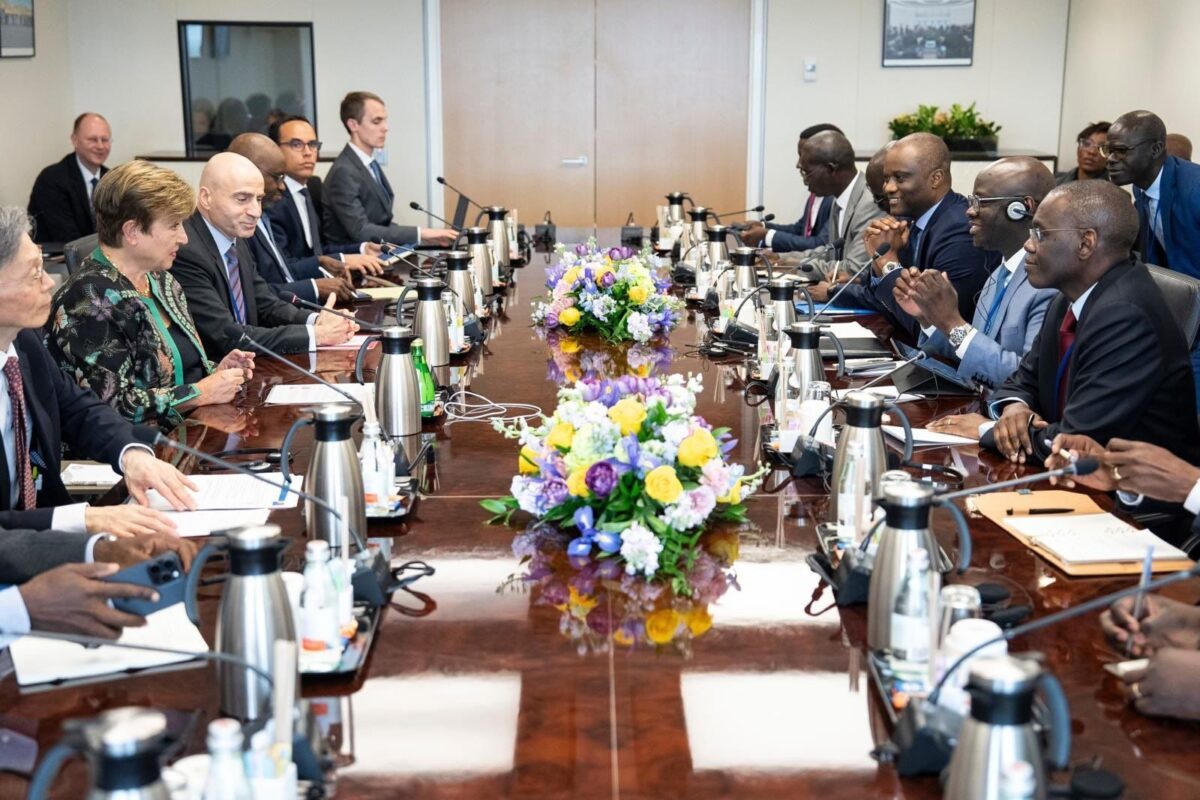Gambiaj.com – (DAKAR, Senegal) – Senegal has sharply revised its debt service projections upward by $5.8 billion over the next three years, according to a revised budget document quietly released during the IMF and World Bank annual meetings in Washington, Reuters reported.
The updated figures, disclosed last week, reveal a significant increase in the government’s debt obligations between 2026 and 2028. For 2026 alone, total principal and interest payments are now projected at 5.49 trillion CFA francs, representing an 11% rise compared to estimates made in June.
The burden grows steeper in subsequent years: 4.41 trillion CFA francs in 2027 (up nearly 33%) and 4.97 trillion CFA francs in 2028 (a surge of almost 50%).
In total, the revision amounts to an increase of approximately 3.2 trillion CFA francs, or $5.8 billion, over three years.
The release of the new projections coincided with Senegal’s negotiations with the International Monetary Fund (IMF) for a new lending program. A fresh IMF mission is expected to arrive in Dakar from October 22 to November 4 to discuss the country’s fiscal outlook.
Reuters noted that the Senegalese Finance Ministry has not provided an explanation for the drastic revisions, highlighting a growing sense of opacity that contrasts with the new government’s promises of transparency.
Hidden Debts and Lingering Consequences
The revised figures come as the administration of President Bassirou Diomaye Faye and Prime Minister Ousmane Sonko grapples with the legacy of billions in undisclosed debts left by the previous regime of Macky Sall. The revelation of these hidden obligations last year prompted the IMF to freeze its $1.8 billion support program to Senegal.
According to IMF data cited by Reuters, Senegal’s total debt-to-GDP ratio, including central government liabilities, state-owned enterprise debt, and domestic arrears, stood at 132% by the end of 2024, placing the country among Africa’s most indebted nations.
The IMF’s forthcoming debt sustainability analysis will be decisive. It will determine whether Senegal’s debt remains manageable or whether the country must consider reprofiling or restructuring, a move the government has sought to avoid.
At stake is also an IMF waiver related to $700 million disbursed under the previous program. Without that waiver, Senegal cannot access new funds, further straining its fiscal position.
Fiscal Tightrope and Political Pressure
The massive surge in debt service costs underscores the fiscal challenge confronting the Faye-Sonko administration, which came to power in April 2024 on pledges to restore financial integrity and accountability.
The steep increases, 11% in 2026, 33% in 2027, and 50% in 2028, threaten to squeeze the state’s budgetary flexibility, reducing funds available for essential public investments in infrastructure, education, and health.
For a nation banking on forthcoming oil and gas revenues to drive development, the ballooning debt burden raises questions about the sustainability of its economic model. Each successive audit since the change of government has unearthed new liabilities, eroding investor confidence and complicating negotiations with international lenders.
A Critical Test for Dakar
Observers say the timing of the revised budget’s release in Washington was strategic, possibly an attempt to show the IMF that Senegal is ready to disclose its true financial position. Yet it may also signal that the government is overwhelmed by the scale of inherited debt.
Either interpretation points to a fraught negotiation ahead. With the IMF already wary of previous misreporting, it is likely to demand tighter fiscal discipline and greater transparency before approving any new arrangement.
For ordinary Senegalese, the repercussions are tangible: more austerity, reduced public spending, and delayed development projects under the government’s long-term Vision 2050 strategy.
The hidden debts of the past, it seems, will continue to haunt Senegal’s economic future and test the resolve of its new leadership.










